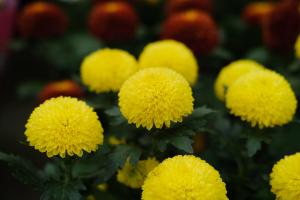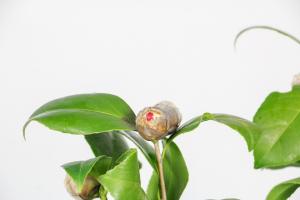Can Pasta Water Be Used to Water Plants
Many of us boil pasta at least once a week, if not more, and after the pasta is cooked, we drain the water and throw it away. But have you ever wondered if this pasta water could be put to better use? This brings us to an interesting question – can pasta water be used to water plants?
The Science Behind Pasta Water
Pasta water may seem like an unimportant byproduct, but it actually contains some important nutrients that can be quite beneficial for your plants. While boiling pasta, starches, minerals, and salt are released and mixed in with the water. Starches are a source of glucose, which is an essential nutrient for plants. Minerals such as calcium and magnesium found in pasta can help to fertilize the soil.
The Pros and Cons of Using Pasta Water
There are a few pros and cons to using pasta water to water plants. Let’s start with the pros:
Pasta water is a free source of nutrients for plants.
The water can help to reduce waste and save money on water bills.
Pasta water can help to prevent soil from becoming too acidic.
Now for the cons:
If the pasta was cooked with salt, it can be harmful to some plants that are sensitive to salt.
If the pasta water is not properly cooled, it can potentially harm delicate plants by scorching or burning the leaves.
If the pasta was cooked with oil or other additives, it can harm the plants.
How to Use Pasta Water to Water Plants
If you decide to use pasta water to water your plants, there are a few things you need to keep in mind:
Cool the pasta water before you use it. Water that is too hot can harm plants by burning or scorching the leaves.
Don’t use pasta water that was cooked with salt. This can harm plants that are sensitive to salt or cause the soil to become too salty, which can damage the plants.
Only use pasta water that is free of other additives such as oil or butter. These can harm your plants.
Use the pasta water as you would regular tap water. Make sure to water plants evenly and avoid overwatering, which can lead to root rot.
Conclusion
In conclusion, pasta water can be a useful source of nutrients for plants, but it is important to use it properly. Make sure to cool the water before using it and check to ensure that it does not contain any harmful additives. If used correctly, pasta water can be an eco-friendly and cost-effective way to water your beloved plants!

 how many times do yo...
how many times do yo... how many planted tre...
how many planted tre... how many pine trees ...
how many pine trees ... how many pecan trees...
how many pecan trees... how many plants comp...
how many plants comp... how many plants can ...
how many plants can ... how many plants and ...
how many plants and ... how many pepper plan...
how many pepper plan...






























